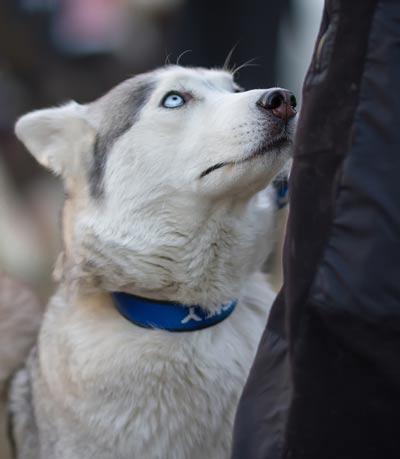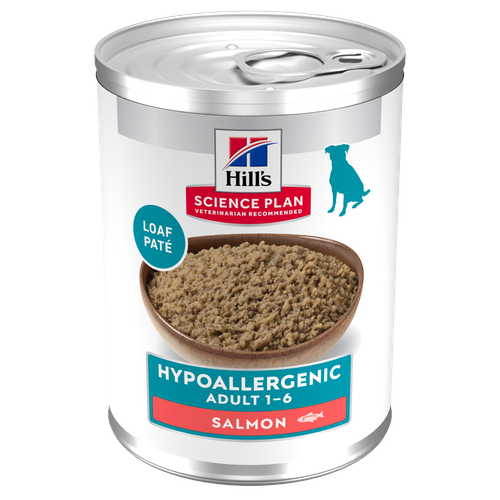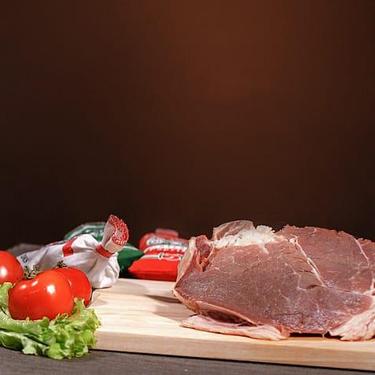
-
Find the right food for your petTake this quiz to see which food may be the best for your furry friend.Find the right food for your petTake this quiz to see which food may be the best for your furry friend.Featured products
 Mature Adult Dog Food
Mature Adult Dog FoodHill's Science Plan Mature Adult Multipack Wet Dog Food with Chicken & Beef are complete premium pet foods for mature adult dogs from 7 years. Your dog will love these deliciously smooth and savoury minced loaves, formulated to deliver the appropriate amount of energy to support the needs of adult dogs.
Shop Now Adult Wet Dog Food with Beef
Adult Wet Dog Food with BeefHill's Science Plan Adult Multipack Wet Dog Food with Chicken, Beef & Turkey are complete premium pet foods for adult dogs from 1 year. Your dog will love these deliciously smooth and savoury minced loaves, formulated for balanced nutrition and overall health.
Shop Now Puppy Food
Puppy FoodHill's Science Plan Puppy Multipack Wet Dog Food with Chicken & Beef are complete premium pet foods for growing puppies from weaning until 1 year old and for pregnant and nursing dogs. Your puppy will love these deliciously smooth and savoury minced loaves, formulated for balanced nutrition and overall health.
Shop NowFeatured products Light Adult Multipack Wet Cat Food with Chicken & Ocean Fish
Light Adult Multipack Wet Cat Food with Chicken & Ocean FishTender chicken chunks in gravy for cats, with L-carnitine and fewer calories for ideal weight management. Packed with high-quality protein, omega-6s, and vitamin E for shiny fur and healthy skin.
Shop Now Mature Adult Wet Cat Food with Chicken
Mature Adult Wet Cat Food with Chicken
Tender chicken chunks in gravy for mature adult cats. Made with easy-to-digest ingredients, high-quality protein for lean muscle maintenance and antioxidant vitamins C+E for optimal health.
Shop Now Adult Multipack Wet Cat Food with Beef, Ocean Fish & Chicken
Adult Multipack Wet Cat Food with Beef, Ocean Fish & ChickenTender chunks in gravy for cats, with high-quality protein to maintain lean muscle. With vitamin E and omega-3s & -6s for healthy skin and balanced minerals to support healthy vital organs.
Shop Now -
Dog
- Dog Tips & Articles
-
Health Category
- Weight
- Food & Environmental Sensitivities
- Urinary
- Digestive
- Joint
- Kidney
-
Life Stage
- Puppy Nutrition
- Adult Nutrition
- Senior Nutrition
Cat- Cat Tips & Articles
-
Health Category
- Weight
- Skin & Food Sensitivities
- Urinary
- Digestive
- Kidney
-
Life Stage
- Kitten Nutrition
- Adult Nutrition
Featured articles The Incredible Science Behind Your Pet's Microbiome
The Incredible Science Behind Your Pet's MicrobiomeLearn what your pet's microbiome is, how it contributes to your pet's gut and overall health, and why nutrition is important in maintaining healthy microbiomes.
Read More The Right Diet For Your Pet
The Right Diet For Your PetIn people, the right diet is very important. If you are eating the wrong way for your metabolism, activity level, age and lifestyle you could end up with health issues.
Read More Show some love with wet foods: a great choice for pets with health issues
Show some love with wet foods: a great choice for pets with health issuesShow some love with wet foods: a great choice for pets with health issues.
Read More -


These days, you’ll find entire aisles at the supermarket dedicated to foods that are “free” of one thing or another. From sugar-free to dairy-free, to gluten-free, consumers are gobbling up these speciality foods to uphold a perceived ""healthier” and “more natural"" nutrition for themselves… as well as their pets.
Interest in more healthful nutrition has rolled right into the pet aisle, and why wouldn’t it? Your dog is a member of your family, after all, and they deserve to be just as healthy as you. Among the recent trends in pet food is grain-free dog food, but contrary to popular belief, allergies and intolerances to grains are rare in our canine companions.
Should dogs eat grains? The truth is that grains have a purpose in dog foods to provide a variety of important nutrients that dogs need.
Bottom line, grain-free dog food isn't necessarily better for your pup. Here are some common grains used in dog food and why you should consider keeping them in their dish.
Common Grains Used in Dog Foods
When looking at the list of ingredients in your dog's food, you might see grains such as:
- Barley
- Corn
- Oats
- Rice
- Wheat
- Rye
- Sorghum
You may be familiar with most of these grains, as some of them are just as popular for your own consumption. Some, like barley, have been described as a "superfood." Barley is high in fibre, both the soluble and insoluble kind. Oats are known for their benefit to heart health in people when eaten as part of a healthy diet and lifestyle.
Do these ingredients have the same benefits for dogs? Should dogs eat grains?

Whole grains such as corn provide dogs with important digestible nutrients including energy, protein, vitamin E and linoleic acid. It is those nutrients that are crucial to a dog's overall health. The most important thing to remember is to choose a food that provides your dog with complete and balanced nutrition. This is true whether or not the food contains grains.


Tasty Tips
Grain-Free Isn't Carb-Free
Veterinarians also frequently hear confusion from pet parents regarding grain-free and low-carb foods. Grain free and low carb do not go hand in hand. To replace grains, grain-free pet foods often use ingredients such as potatoes, sweet potatoes, lentils, quinoa and peas. In fact, some grain-free pet foods contain carbohydrate levels similar to or even higher than dog food containing grains.
Allergies and Grains
Veterinary Practice News interviewed four board-certified vet nutritionists about allergies and the role grains play in them. The nutritionists told the magazine corn, wheat and soy are rarely the cause of food allergies.
"I honestly don't know where that got started. It's not based on any data, and there are excellent foods that contain one or more of those items," said Cailin Heinze, MS, VMD, and a diplomat of the American College of Veterinary Nutrition.
Clinically speaking, the most common food allergens are beef and dairy, with only 10 percent of all pet allergy cases being caused by food at all. Most pets actually have reactions to the world around them, like pollen from grass, trees, moulds and fleas, not foods. If you suspect your dog suffers from an allergic reaction — either environmental, food, or a combination of the two — talk with your vet about the issues your poor pal is experiencing. Then, under consistent professional treatment, you can determine if he has a food allergy and to which ingredient your pup is reacting adversely through some careful food trials.
The Right Grain-Free Food for Your Dog
In the rare case where a dog is, in fact, sensitive to grain, you should first talk to your pet's veterinarian and they may recommend a special food or a high-quality, grain-free dog food that still provides balanced nutritional content. Again, your veterinarian can be a great resource for a recommendation.
How do you know if what you're feeding your dog is high in quality?
Like humans, dogs can have their own unique nutritional needs. When choosing the right dog food for your furry friend, make sure to talk with your vet and do your research before committing, so you can find the right balance that meets your pup's needs.
REFERENCE:
1Eckstein, S. (n.d.). Caring for a Dog with Food Allergies. Retrieved August 1, 2019, from https://pets.webmd.com/dogs/guide/caring-for-a-dog-that-has-food-allergies#1


One of our staff authors prepared this article for you
Related products

Hill's Science Plan Mature Adult Multipack Wet Dog Food with Chicken & Beef are complete premium pet foods for mature adult dogs from 7 years. Your dog will love these deliciously smooth and savoury minced loaves, formulated to deliver the appropriate amount of energy to support the needs of adult dogs.

Hill's Science Plan Puppy Multipack Wet Dog Food with Chicken & Beef are complete premium pet foods for growing puppies from weaning until 1 year old and for pregnant and nursing dogs. Your puppy will love these deliciously smooth and savoury minced loaves, formulated for balanced nutrition and overall health.

Hill's Science Plan Hypoallergenic Adult Wet Dog Food with Salmon is a complete premium pet food for all adult dogs from 1 year. This savoury tinned loaf is specially formulated for dogs with delicate skin and stomachs. It features a single novel animal protein source and is grain-free.

Hill's Science Plan Adult Multipack Wet Dog Food with Chicken, Beef & Turkey are complete premium pet foods for adult dogs from 1 year. Your dog will love these deliciously smooth and savoury minced loaves, formulated for balanced nutrition and overall health.
Related articles

Learn about the potential health risks of a raw diet for dogs and why they aren't the best option for your pup or you.

How, when and what to feed your new puppy is an important decision, learn more about the things to consider for feeding your puppy.

Learn effective tips for feeding a dog that's a picky eater and ensure proper nutrition for a finicky eater. Discover tips for pet parents at Hill's Pet UK.

Many human foods are dangerous to dogs. Read about 5 of the worst toxic food offenders that can kill your dog - and how much it takes to hurt them.

Put your dog on a diet without them knowing
Our low calorie formula helps you control your dog's weight. It's packed with high-quality protein for building lean muscles, and made with purposeful ingredients for a flavourful, nutritious meal. Clinically proven antioxidants, Vitamin C+E, help promote a healthy immune system.
Put your dog on a diet without them knowing
Our low calorie formula helps you control your dog's weight. It's packed with high-quality protein for building lean muscles, and made with purposeful ingredients for a flavourful, nutritious meal. Clinically proven antioxidants, Vitamin C+E, help promote a healthy immune system.

